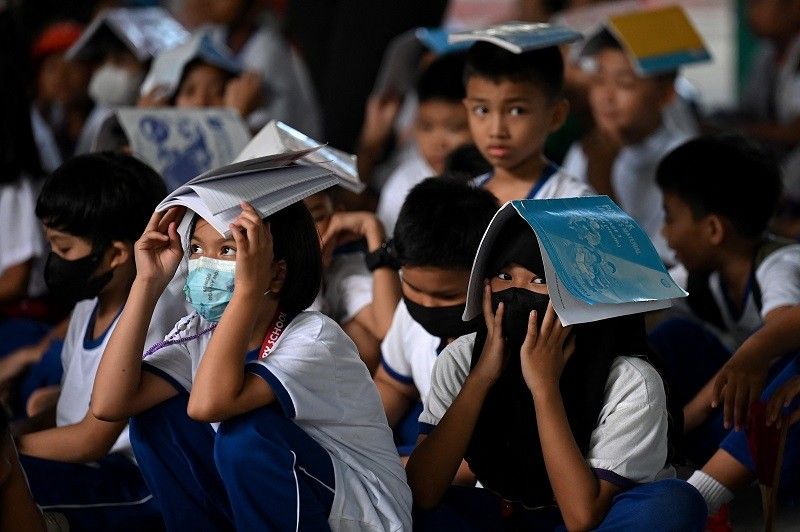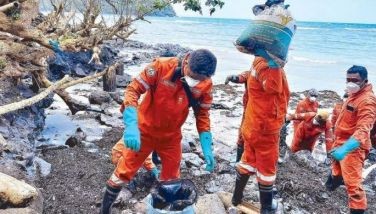Climate advocates tell DepEd: Time to solarize schools amid warming world

MANILA, Philippines — The Department of Education must consider powering schools with solar energy even after it has allegedly decided to bring back the old academic calendar to seek relief from the heat, a group of student-climate justice advocates said on Thursday, stressing the need for the government to pursue long-term solutions.
Zyoen Garcia of the Stewards and Volunteers for the Earth Philippines (SAVE Philippines) warned that extreme weather events have become a year-round threat and that moving the start of classes to June will still force students and teachers to deal with strong supertyphoons.
“Because of the worsening climate crisis, we no longer have what we used to call ‘normal’ weather that is conducive and safe for students and teachers,” Garcia said in a statement.
Since 2023, teacher and student groups have clamored to bring back the old academic calendar that begins in June to avoid holding classes during the dry season, after extremely hot temperatures led to a rise in student absences.
RELATED: Teacher survey finds 'intolerable' summer heat affecting attendance, learning
DepEd last week allegedly decided to schedule the next start of classes in July for the school year 2024-2025) as part of its gradual return to the old calendar that spans June to March, according to teacher groups who met with DepED officials.
DepEd has yet to issue formal guidelines for the change. During her second Basic Education Report on Thursday, Vice President and DepEd Secretary Sara Duterte said the department is still “awaiting the results of the consultation” with teacher groups and parents.
Schedule change a ‘band aid’ solution?
Garcia said that changing the school calendar is a “band-aid solution” that does not resolve the country’s continued reliance on fossil fuels.
“It is not surprising that (the government does) not have the political will to promote actual solutions to the climate crisis and invest in adaptation and transition to renewable energy because they themselves are the protectors of the status quo,” Garcia added.
RELATED: Solar power offers students in unelectrified Laiban a chance to catch up
As an alternative, Garcia said that DepEd must push for the transition of schools to “rely on solar and other forms of renewable energy instead of fossil fuels.”
“But the youth cannot also wait for those in position to suddenly have a change of heart,” Garcia said.
“As youth that are directly affected by the worsening climate crisis and inheritors of whatever world is left for us, we must also take action and demand the government and institutions to curb all destructive programs and policies and transition to renewable energy,” she added.
RELATED: Climate-ready schools among Marcos' priorities, still needs Congress to align
President Ferdinand Marcos Jr. vowed in his second State of the Nation Address that he would push for the retrofitting of schools and facilities to be "climate-ready and disaster-proof."
A climate-ready and disaster-proof school refers to a "safe, resilient, learning-conducive, inclusive and green school infrastructure" that protects students and education personnel from disasters and climate risks, according to Department of Education (DepEd) Order No. 19 s. 2023.
Duterte did not mention any concrete plans by the department to disaster-proof public school classrooms in her second Basic Education Report on Thursday. She did, however, mention that DepEd has partnered with the World Bank and the Asian Development Bank to strengthen the resilience of school infrastructure and climate change-resilient education.
- Latest




























